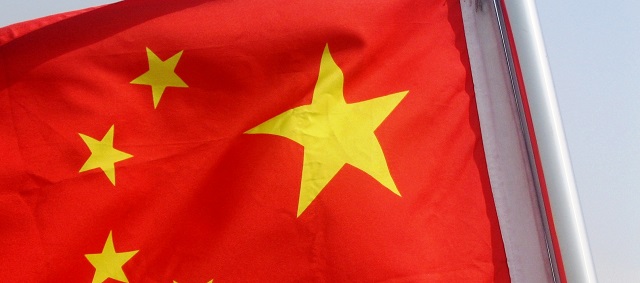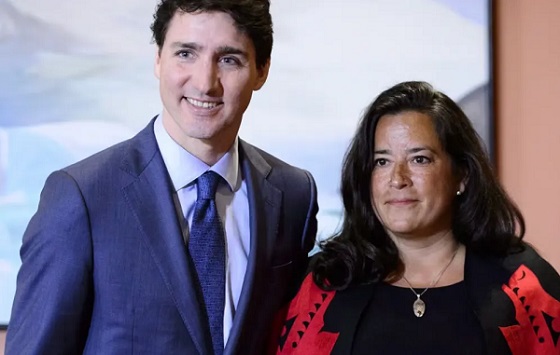Business
EXCLUSIVE: US Is Failing To Counter Threat Of Chinese Land Ownership, Report Finds

 From the Daily Caller News Foundation
From the Daily Caller News Foundation
The United States government is not appropriately addressing the threat posed by growing Chinese ownership of American land, according to a report released by the Heritage Foundation Thursday.
The federal government is woefully ill-equipped to track Chinese-owned real estate in the country, despite the serious threat these Chinese Communist Party-affiliated entities can pose to critical U.S. infrastructure, according to the report. The report calls on federal and state leaders to take action, such as increasing transparency and conducting more critical reviews of land purchases.
“China’s ownership of American land is nontransparent and unscrutinized, and the federal government has failed to address potential threats even as Chinese ownership of U.S. real estate increases,” Bryan Burack, a senior policy advisor for the Heritage Foundation and author of the study, told the Daily Caller News Foundation.
The federal government lacks an adequate system in place to broadly monitor Chinese ownership of U.S. real estate, due to ownership of real estate being overseen by state and local governments, the report notes. For this reason, the U.S. government has no clear picture on China’s total land holdings in the country.
“The United States should be watching land and real estate transactions from our top adversary, not ignoring them,” Burack said.
The Daily Caller News Foundation has reported extensively on Chinese companies’ land purchases in the U.S. For instance, the parent company of battery maker Gotion, which plans to build factories in Michigan and Illinois, participated in Chinese Communist Party (CCP) programs that acquire technology for China’s military, the DCNF reported. The DCNF also exposed the CCP ties of companies attempting to set up shop near military bases in Kansas.
Smithfield Foods, America’s largest pork producer, is owned by a Chinese firm and exported massive quantities of pork to its China-based “sister company” as that company stockpiled food for the Chinese military, the DCNF exclusively reported.
Chinese entities have spent over $100 billion acquiring American companies since 2010, with many of these businesses owning real estate across the country, according to the report. In 2020, the National Association of Realtors confirmed that China was the top foreign buyer of American real estate.
The Agricultural Foreign Investment Disclosure Act (AFIDA) does give some insight into the amount of agricultural land being purchased by foreign entities. The latest AFIDA report indicates that Chinese investors own a relatively small fraction of the country’s privately held agricultural land, holding only 346,915 acres, or roughly one percent, of foreign-held acres of private land, as of December 31, 2022.
However, Chinese-owned agricultural acreage grew over five-fold between 2011 and 2021, the report found.
This trend is worrisome because the Chinese government has made numerous, well-publicized attempts to gain access to key locations within the U.S.
Examples the report highlights include China’s attempt to equip a pagoda with signal collection technology and gift it in Washington, D.C., an attempt by a Chinese billionaire to build a wind development project near Laughlin Air Force Base in Val Verde County, Texas, and an attempt by a Chinese agribusiness to develop a cornmeal project just 12 miles from Grand Forks Air Base.
“In both the Val Verde and Grand Forks cases, existing federal government mechanisms proved manifestly unable to contend with threats that were clearly perceivable to the Americans living nearby — as well as, seemingly, to the Defense Department itself,” the report says. “Frighteningly, China’s threat to U.S. military infrastructure only continues to evolve.”
The Heritage Foundation recommended the federal government and state lawmakers enact laws to better equip the country for this growing threat.
“The threat posed by Chinese entities purchasing real estate in the U.S. and using it for malign purposes is real,” the report concludes. “As China presents the United States’ greatest national security threat and has a history of particular threats to real estate and agricultural land, measures to counter those threats must be a priority.”
Agriculture
Cloned foods are coming to a grocer near you

This article supplied by Troy Media.
And you may never find out if Health Canada gets its way
Cloned-animal foods could soon enter Canada’s food supply with no labels identifying them as cloned and no warning to consumers—a move that risks public trust.
According to Health Canada’s own consultation documents, Ottawa intends to remove foods derived from cloned animals from its “novel foods” list, the process that requires a pre-market safety review and public disclosure. Health Canada defines “novel
foods” as products that haven’t been commonly consumed before or that use new production processes requiring extra safety checks.
From a regulatory standpoint, this looks like an efficiency measure. From a consumer-trust standpoint, it’s a miscalculation.
Health Canada argues that cloned animals and their offspring are indistinguishable from conventional ones, so they should be treated the same. The problem isn’t the science—it’s the silence. Canadians are not being told that the rules for a controversial technology are about to change. No press release, no public statement, just a quiet update on a government website most citizens will never read.
Cloning in agriculture means producing an exact genetic copy of an animal, usually for breeding purposes. The clones themselves rarely end up on dinner plates, but their offspring do, showing up in everyday products such as beef, milk or pork. The benefits are indirect: steadier production, fewer losses from disease or more uniform quality.
But consumers see no gain at checkout. Cloning is expensive and brings no visible improvement in taste, nutrition or price.
Shoppers could one day buy steak from the offspring of a cloned cow without any way of knowing, and still pay the same, if not more, for it.
Without labels identifying cloned origin, potential efficiencies stay hidden upstream. When products born from new technologies are mixed with conventional ones, consumers lose their ability to differentiate, reward innovation or make an informed choice. In the end, the industry keeps the savings while shoppers see none.
And it isn’t only shoppers left in the dark. Exporters could soon pay the price too. Canada exports billions in beef and pork annually, including to the EU. If cloned origin products enter the supply chain without labelling, Canadian exporters could face additional scrutiny or restrictions in markets where cloning is not accepted. A regulatory shortcut at home could quickly become a market barrier abroad.
This debate comes at a time when public trust in Canada’s food system is already fragile. A 2023 survey by the Canadian Centre for Food Integrity found that only 36 per cent of Canadians believe the food industry is “heading in the right direction,” and fewer than half trust government regulators to be transparent.
Inserting cloned foods quietly into the supply without disclosure would only deepen that skepticism.
This is exactly how Canada became trapped in the endless genetically modified organism (GMO) debate. Two decades ago, regulators and companies quietly introduced a complex technology without giving consumers the chance to understand it. By denying transparency, they also denied trust. The result was years of confusion, suspicion and polarization that persist today.
Transparency shouldn’t be optional in a democracy that prides itself on science based regulation. Even if the food is safe, and current evidence suggests it is, Canadians deserve to know how what they eat is produced.
The irony is that this change could have been handled responsibly. Small gestures like a brief notice, an explanatory Q&A or a commitment to review labelling once international consensus emerges would have shown respect for the public and preserved confidence in our food system.
Instead, Ottawa risks repeating an old mistake: mistaking regulatory efficiency for good governance. At a time when consumer trust in food pricing, corporate ethics and government oversight is already fragile, the last thing Canada needs is another quiet policy that feels like a secret.
Cloning may not change the look or taste of what’s on your plate, but how it gets there should still matter.
Dr. Sylvain Charlebois is a Canadian professor and researcher in food distribution and policy. He is senior director of the Agri-Food Analytics Lab at Dalhousie University and co-host of The Food Professor Podcast. He is frequently cited in the media for his insights on food prices, agricultural trends, and the global food supply chain.
Troy Media empowers Canadian community news outlets by providing independent, insightful analysis and commentary. Our mission is to support local media in helping Canadians stay informed and engaged by delivering reliable content that strengthens community connections and deepens understanding across the country.
Business
Bank of Canada governor warns citizens to anticipate lower standard of living

From LifeSiteNews
“Unless something changes, our incomes will be lower than they otherwise would be.”
Bank of Canada Governor Tiff Macklem gave a grim assessment of the state of the economy, essentially telling Canadians that they should accept a “lower” standard of living.
In an update on Wednesday in which he also lowered Canada’s interest rate to 2.25 percent, Macklem gave the bleak news, which no doubt will hit Canadian families hard.
“What’s most concerning is, unless we change some other things, our standard of living as a country, as Canadians, is going to be lower than it otherwise would have been,” Macklem told reporters.
“Unless something changes, our incomes will be lower than they otherwise would be.”
Macklem said what Canada is going through “is not just a cyclical downturn.”
Asked what he meant by a “cyclical downturn,” Macklem blamed what he said were protectionist measures the United States has put in place such as tariffs, which have made everything more expensive.
“Part of it is structural,” he said, adding, “The U.S. has swerved towards protectionism.”
“It is harder to do business with the United States. That has destroyed some of the capacity in this country. It’s also adding costs.”
Macklem stopped short of saying out loud that a recession is all but inevitable but did say growth is “pretty close to zero” at the moment.
While some U.S. protectionist measures put in place by President Donald Trump have impacted Canada, the reality is that since the Liberals took power in 2015, first under former Prime Minister Justin Trudeau and now under Mark Carney, government spending has been out of control, according to experts. Rising inflation is rampant.
Canadian taxpayers are already dealing with high inflation and high taxes, in part due to the Liberal government overspending and excessive money printing, and even admitting that giving money to Ukraine comes at the “taxpayers’” expense.
As reported by LifeSiteNews, Carney boldly proclaimed earlier this week that his Liberal government’s upcoming 2025 budget will include millions more in taxpayer money for “SLGBTQI+ communities” and “gender” equality and “pride” safety.
As reported by LifeSiteNews, the Canadian Taxpayers Federation (CTF) recently blasted the Carney government for spending $13 million on promotional merchandise such as “climate change card games,” “laser pens and flying saucers,” and “Bamboo toothbrushes” since 2022.
Canadians pay some of the highest income and other taxes in the world. As reported by LifeSiteNews, Canadian families spend, on average, 42 percent of their income on taxes, more than food and shelter costs. Inflation in Canada is at a high not seen in decades.
-

 Alberta2 days ago
Alberta2 days agoFrom Underdog to Top Broodmare
-

 Business2 days ago
Business2 days ago“We have a deal”: Trump, Xi strike breakthrough on trade and fentanyl
-

 Alberta2 days ago
Alberta2 days agoProvince orders School Boards to gather data on class sizes and complexity by Nov 24
-

 Crime2 days ago
Crime2 days agoCanada Seizes 4,300 Litres of Chinese Drug Precursors Amid Trump’s Tariff Pressure Over Fentanyl Flows
-

 National2 days ago
National2 days agoWatchdog Presses Ottawa to Release Hidden Lobbying Rulings
-

 Alberta2 days ago
Alberta2 days agoHow one major media torqued its coverage – in the take no prisoners words of a former Alberta premier
-

 International2 days ago
International2 days agoNetanyahu orders deadly strikes on Gaza with over 100 dead despite ceasefire deal
-

 National2 days ago
National2 days agoWatchdog Asks Whether RCMP Brass Shielded Lobbyists in Ottawa’s Influence Scandals










